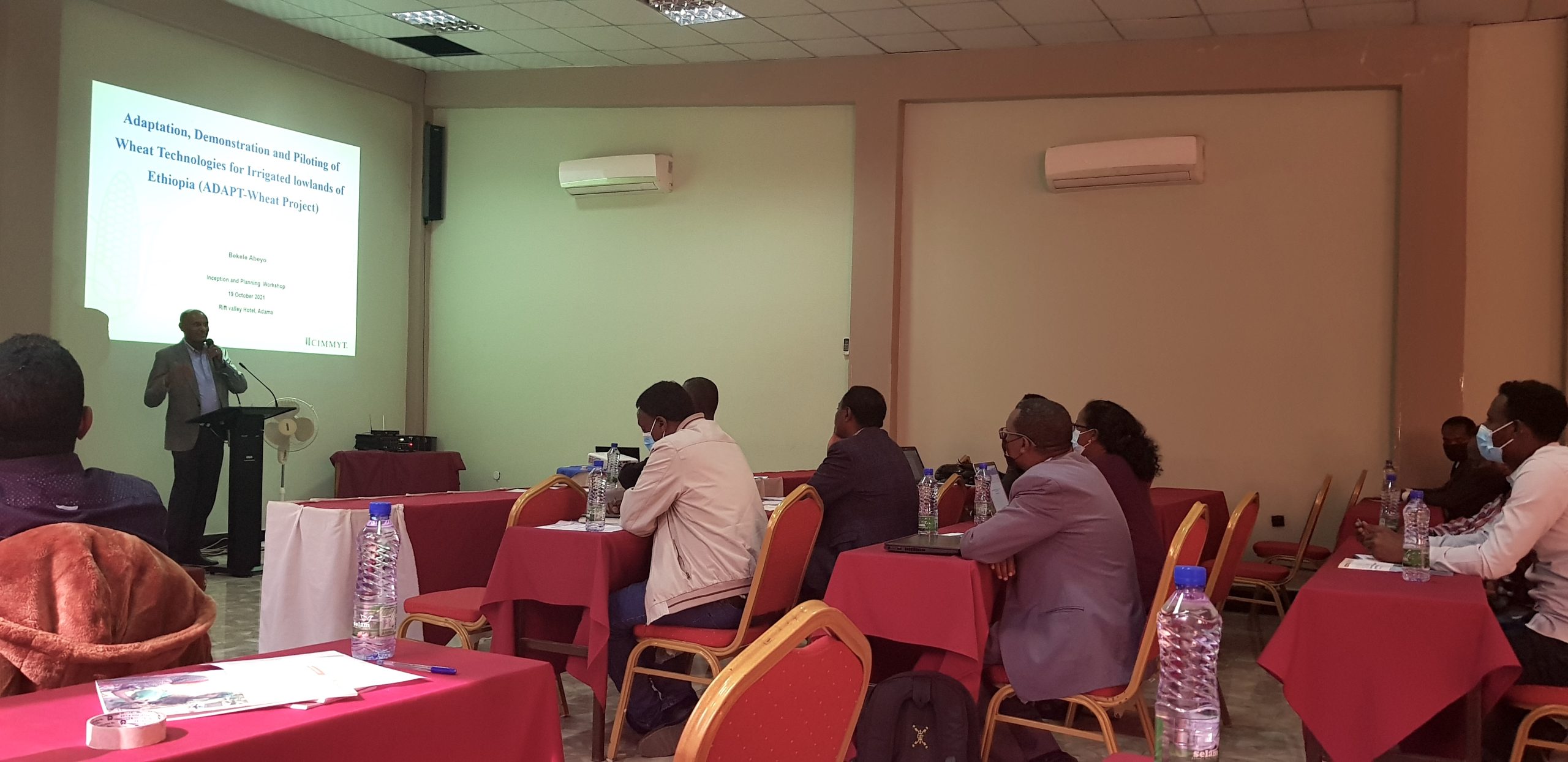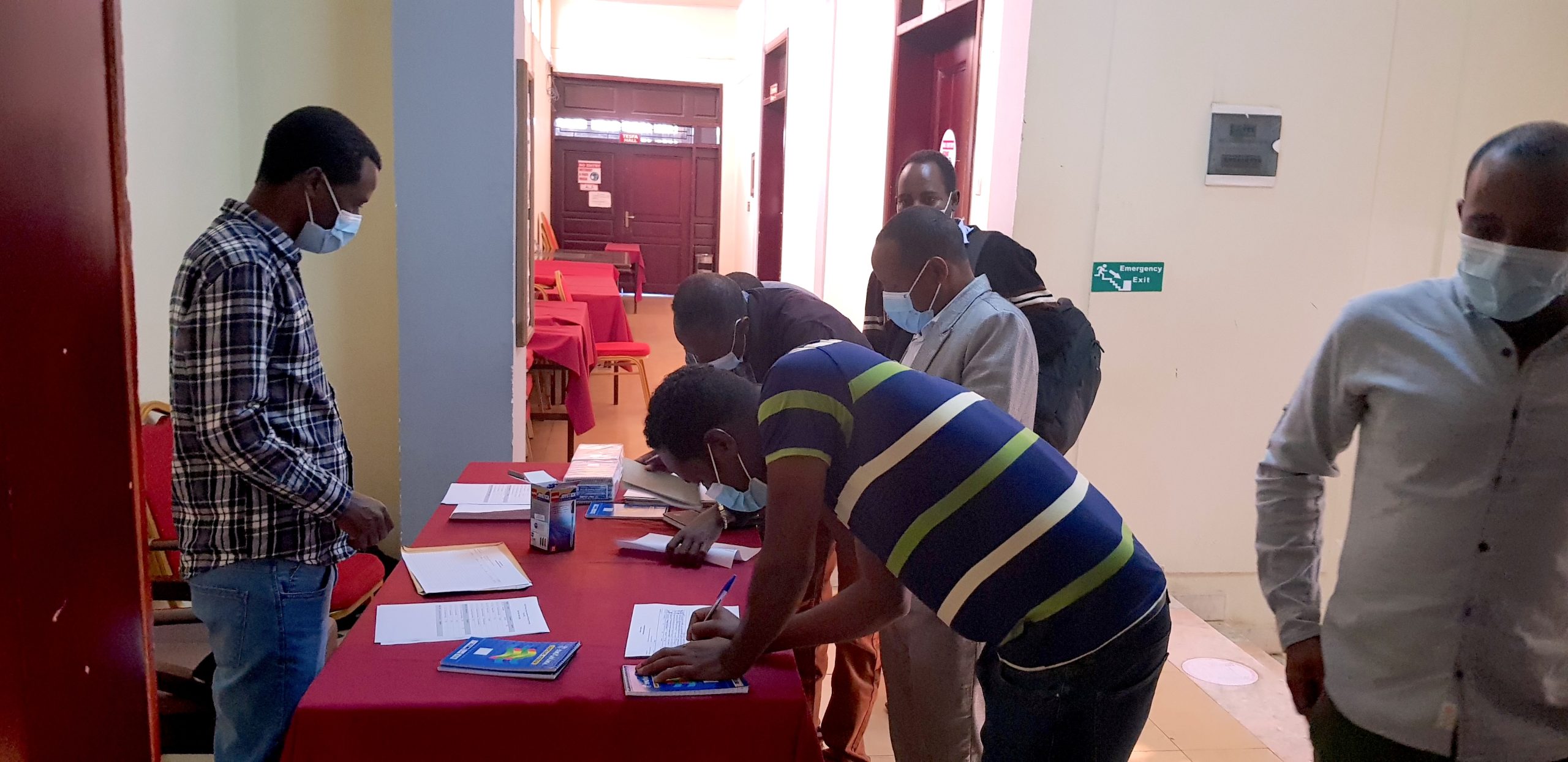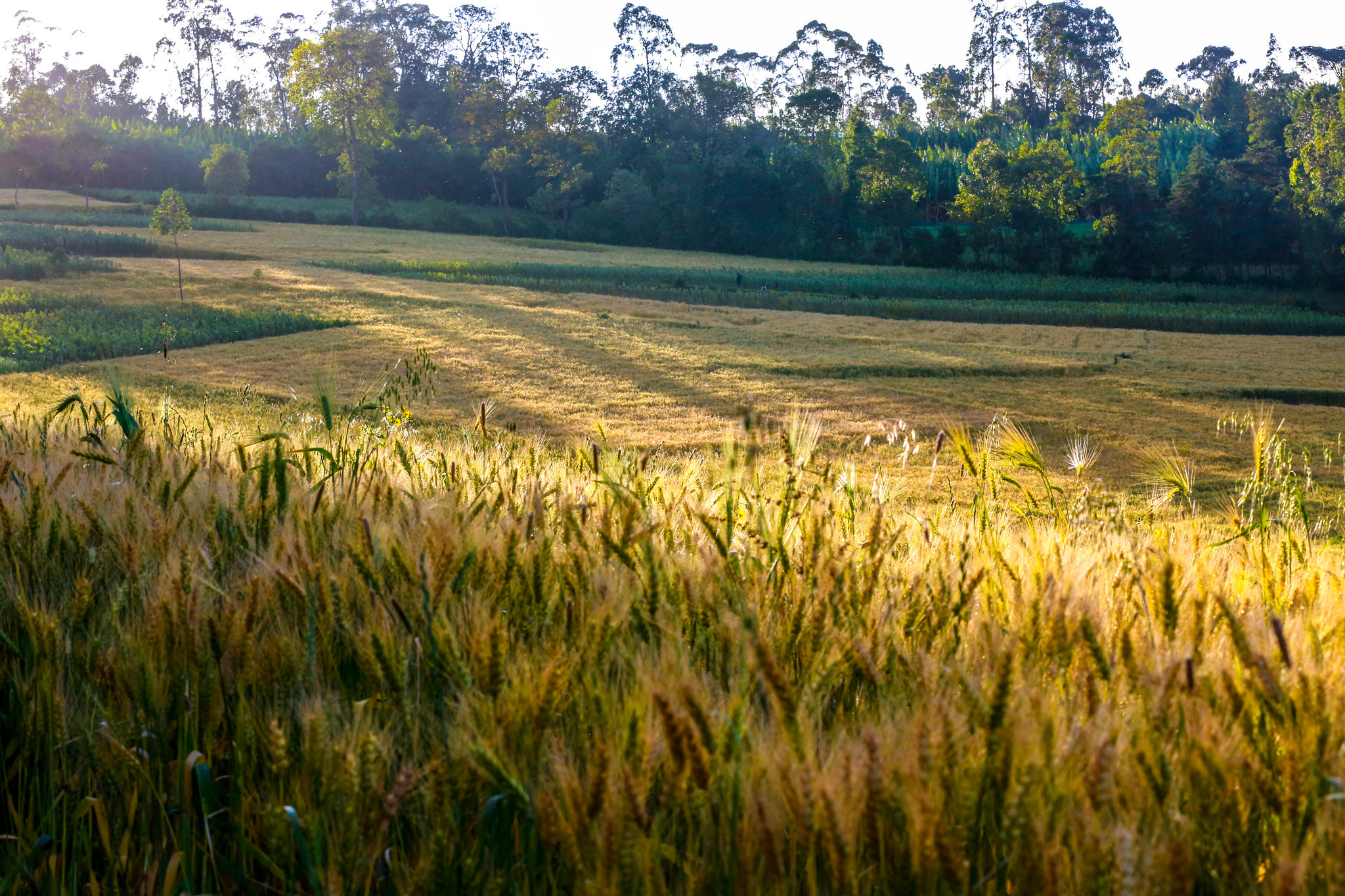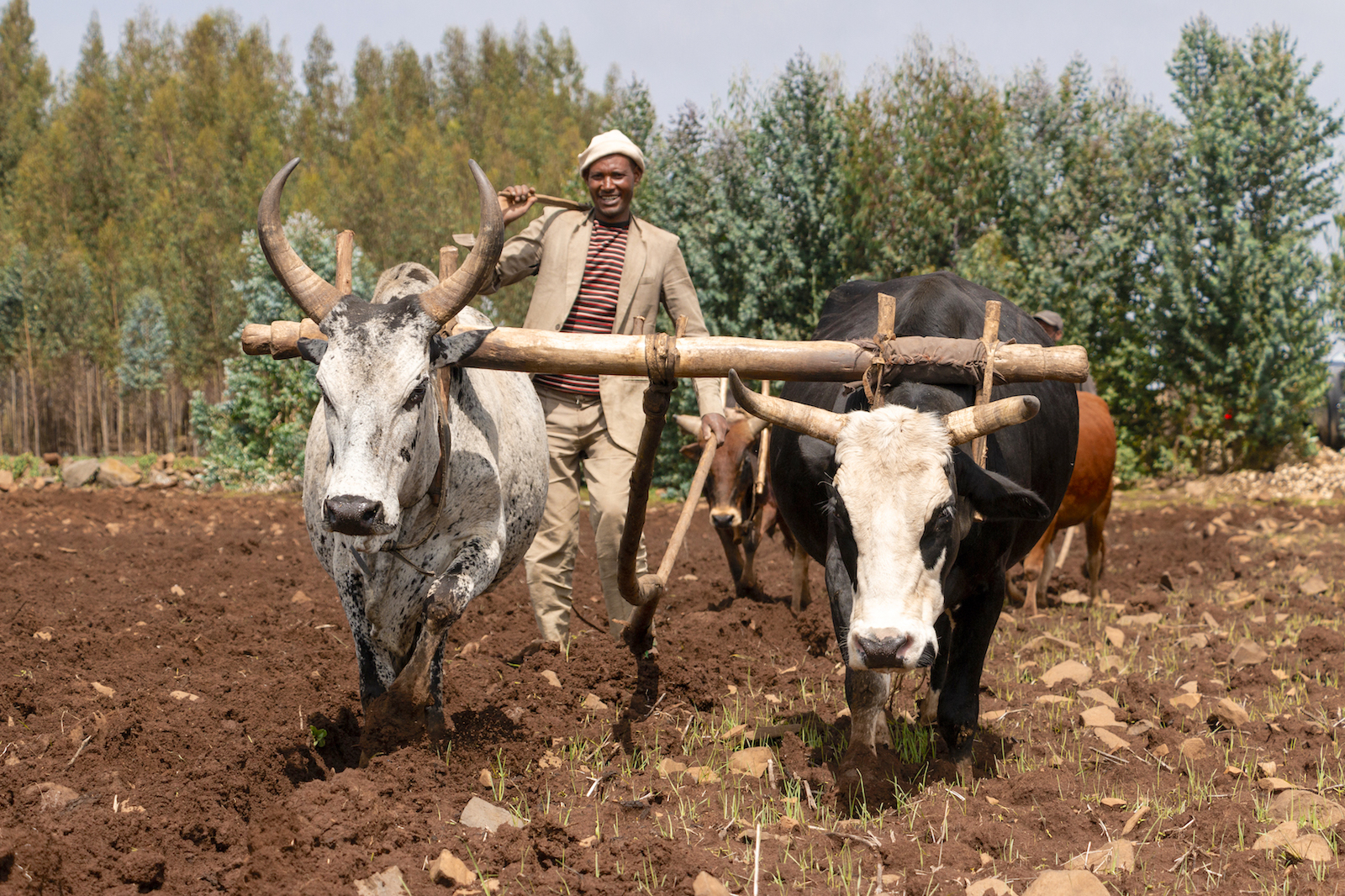
The Adaptation, Demonstration, and Piloting of Wheat Technologies for Irrigated Lowlands of Ethiopia (ADAPT-Wheat) project was launched on October 19, 2021, with an inception workshop held in Adama, Ethiopia.
The project, led by the International Maize and Wheat Improvement Center (CIMMYT), aims to transform the irrigated lowlands of Ethiopia’s Awash valley from a cotton monoculture to a cotton-wheat rotation. This transformation will improve local wheat production and make important strides towards helping the country reach its goal of wheat self-sufficiency.
Wheat is the second most important staple crop in Ethiopia and a major pillar for food security. CIMMYT has a longstanding role in helping Ethiopia’s wheat farmers adopt improved, high-yielding, and disease-resistant varieties. This close collaboration became evident in 2018, when DNA fingerprinting analysis showed that 87% of all wheat varieties grown in Ethiopia are CIMMYT-derived.
Thanks to improved farmer access to better varieties, the adoption of a number of agronomic practice recommendations, conducive marketing, and strong supply chains, domestic wheat production and productivity in Ethiopia have nearly doubled over the past 15 years. Nevertheless, due to population growth, higher incomes, and accelerated urbanization, the demand for wheat in Ethiopia is increasing faster than productivity.
Scientists believe wheat grain yields of four tons per hectare are possible in low land areas—which include the Afar and Oromia regions—if wheat production is increased through appropriate mechanization, proven agronomic practices, and high-yielding, early-maturing, heat-tolerant, rust-resistant wheat varieties.
When the three-year ADAPT-Wheat project is fully implemented, it will contribute to Ethiopia’s goal for wheat self-sufficiency by 2023.

A space for discussion
At the launch event, participants gathered to share feedback and experiences, identify gaps, and clarify roles and responsibilities among the implementing partners. The meeting also allowed project leaders to confirm participating kebeles (small administrative units), and plan and endorse project activities.
“The forum was a good opportunity to speak about irrigated wheat, get to know each other, and understand the role of each office and its contribution to the success of the project,” said Bekele Abeyo, wheat breeder and CIMMYT’s Country Representative for Ethiopia.
Participants in the workshop included scientists from a number of Ethiopian research institutes, representatives of public and private seed enterprises, heads of bureaus of Agriculture (including those of the Afar and Oromia regions), and local administrations, and representatives of Germany’s Agency for International Cooperation (GIZ).
The discussion included an introduction of CIMMYT and an overview of its global impact, history, and current activities in Ethiopia. An overview of the ADAPT-Wheat project’s objectives, outputs, activities, impact pathways, partners and management was also presented in the forum.
Participants also discussed the key agronomy, breeding, and mechanization activities that will be assessed, validated, scaled up, and scaled out during the project in seven districts, two in the Afar region and five in the Oromia region.
“The inception and planning workshop has a common understanding on how to tackle the bottlenecks ahead of the implementation of the project. The forum was a good opportunity for implementing partners to make a commitment for the new project by realizing the contribution of lowland irrigated wheat in achieving the goal of wheat self-sufficiency by 2023,” Bekele said.

 Nutrition, health and food security
Nutrition, health and food security 
